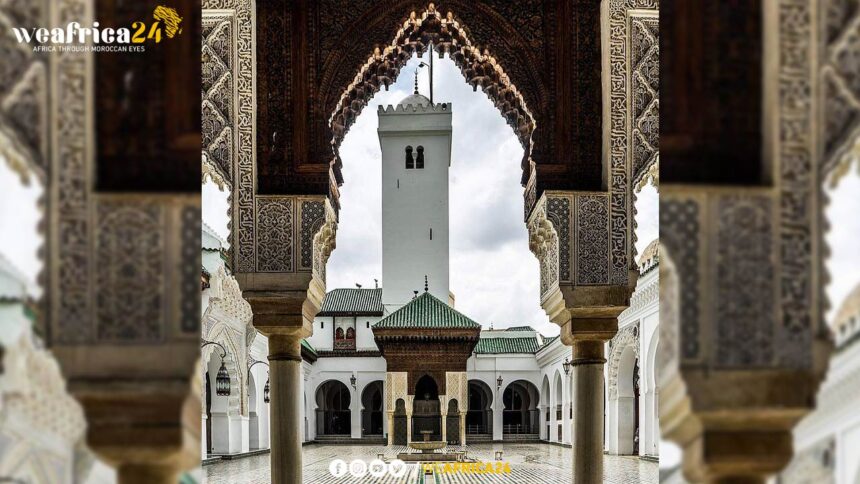Kamel Tahdhib, an Indonesian student, traveled thousands of miles to attend a Moroccan university with a legacy so profound that it continues to attract scholars over a millennium after its inception. Al-Qarawiyyin University, nestled in the historic medina of Fez, is home to one of the world’s oldest libraries, boasting a remarkable collection of Islamic manuscripts cherished by historians.
Founded 12 centuries ago by a pioneering woman, Fatima al-Fihri, a devout and wealthy Muslim from Kairaouan, Tunisia, the university has become a symbol of enduring educational excellence. Initially established as a mosque in the 9th century, it evolved into a university by the 10th century with the construction of madrassas, or Islamic religious schools, around it. Today, the institution encompasses ten of these madrassas, focusing primarily on Islamic teaching and religious education since 2015.
Tahdhib, a 22-year-old freshman, expressed his motivation for choosing al-Qarawiyyin University, citing its “widespread fame around the world.” His choice reflects the university’s historic role in preserving and disseminating Islamic knowledge.
Driss Fassi Fihri, the vice-president of al-Qarawiyyin University, highlights the institution’s historical breadth. “It was historically a university with specializations in all areas of education,” he noted. The university’s library underscores this diversity, housing manuscripts by renowned regional thinkers, including Ibn Khaldun’s “Muqadimmah,” a 9th-century Quran in Kufic calligraphy, and a manuscript on the Maliki school of Islamic jurisprudence by Ibn Rochd, also known as Averroes.
The university’s significance is further validated by Guinness World Records, which recognizes it as the “oldest existing, and continually operating educational institution in the world.” This distinction underscores al-Qarawiyyin’s unique place in the global academic landscape.
Looking ahead, the university faces the challenge of balancing its rich historical legacy with the demands of modernization. Driss Fassi Fihri emphasizes the need to preserve its authentic message while embracing new technologies to ensure its continued relevance and accessibility in the contemporary world.







